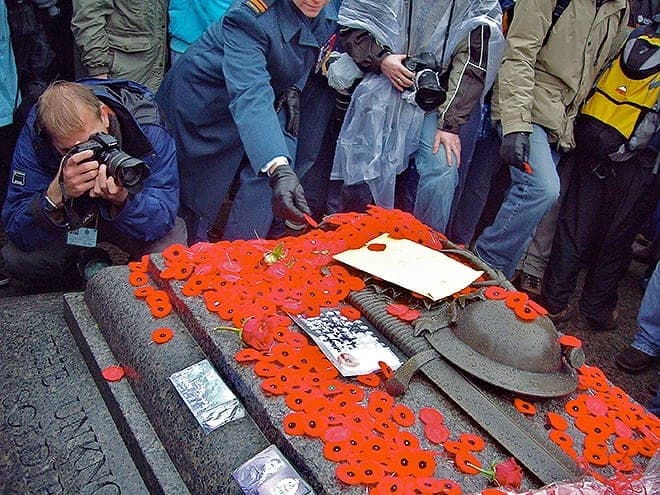A better future for our veterans

 Trudeau includes more veterans’ benefits in his plan
Trudeau includes more veterans’ benefits in his plan
Author: elisabeth sahlmueller – contributor
This country’s Veterans are some of the bravest people out there. Since the Boer War in 1899, Canadians have fought in two major world wars, several peacekeeping missions, as well as other smaller wars. Thousands of men and women have died fighting, or have come back home forever changed, due to injuries or personal scars from the horrible events they have experienced. War can sometimes be seen as patriotic and exciting, but the harsh reality is that war is actually brutal. Canadians have fought in tough weather conditions and have seen things no one would ever wish to see, like watching their comrade die in front of them. In the past decade, benefits of Canadian Veterans have steadily decreased under Stephen Harper’s Conservative Government, and it’s clear that changes are needed to drastically improve the status quo.
Stephen Harper has faced a lot of criticism for his poor treatment of Canadian Veterans. Although he has denied this notion by stating that he has increased their benefits by 35 per cent, a large amount of information proves otherwise. In April 2006, the Conservative Government released a New Veterans Charter, which completely changed the way our Veterans receive their financial support. Instead of getting a life-long, tax-free pension and monthly payments, they were only allotted to get one large sum of around $70,000. Harper also closed down nine Veteran Affairs offices, which caused major layoffs and saved the federal government $3.8 million. In the same year, he chose to increase funding by 4 million for advertisements for hockey playoffs. I may be wrong, but I think that our Veterans are a lot more important and could benefit much more from $3.8 million than Canadian hockey players and their teams.
Many soldiers come back from war with Post Traumatic Stress Disorder, or some other type of mental health condition. The Conservative government should have ensured that returning soldiers have the financial support to receive adequate health care. Unfortunately, this wasn’t a major concern of our past government. A 2014 study showed that half of Canadian Veterans don’t get the necessary amount of money to cover their health care needs.
Despite all the mistreatment of Veterans, there is hope for the future. Justin Trudeau has big plans to improve the care of Canadian Veterans, by first fixing what the Conservatives screwed up and then implementing some of his own ideas. He wants to bring back life-long pension, reopen the nine Veteran Affairs offices and hire 400 new service workers. One of Trudeau’s new plans, is to put $20 million towards the development of two large Veteran care centres, one in the east and one in the west, that would provide care for both general issues and mental health conditions.
A second major plan is to set up a Veterans Education Fund that would be budgeted at around $80 million and would give returning soldiers financial support to attend university, or a technical college. These are just a few of Justin Trudeau’s plans that would greatly improve the lives of our Veterans and I sincerely hope that he is able to implement them.
Although much needs to be done to fix the current situation for Canadian Veterans, I think improvement is possible, especially with a Prime Minister who believes strongly in increasing their benefits. “Future generations of men and women should know that they will be looked after when they finish their service to Canada.” Actions always speak louder than words; although the Conservatives said they increased Veteran benefits, they failed to administer any action that could make that statement true. Only time will tell if Justin Trudeau fixes the benefits of Canadian Veterans, but for their sake, I hope he is successful. Canadian Veterans should respected and remembered all year long, not just on Remembrance Day and it should be our government’s responsibility to ensure they receive the necessary health care and financial support.









